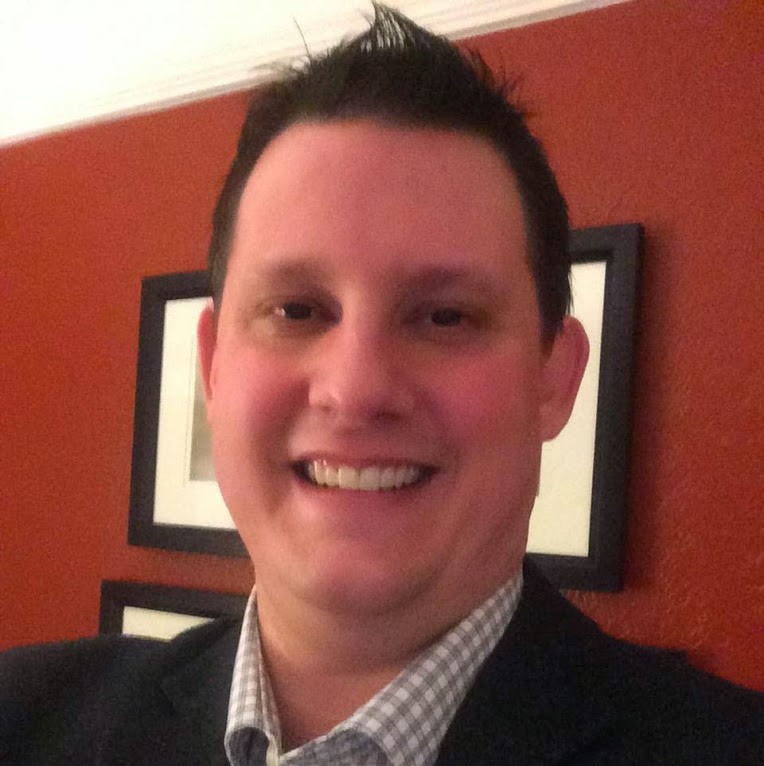Interview with Dr. Neil Baird

Dr. Neil Baird arrived in Bowling Green to take on the role of associate professor in the Rhetoric and Writing PhD program. He generously agreed to an interview about his experience at BGSU so far, his hopes for the future, and his advice to graduate students. Responses have been lightly edited.
What has been the biggest change in your move to Bowling Green State University as a new faculty member?
The biggest change I've experienced in my move to BGSU is being able to focus on research, teaching, and mentoring without having administrative responsibilities. I served as Director of the University Writing Center for ten years at Western Illinois University, so I had administrative responsibilities upon graduating from the University of Nevada, Reno. I love writing center work and the writing-across-the-curriculum (WAC) responsibilities often connected to that work, but it's been rewarding to concentrate on research, teaching, and mentoring doctoral students. I don't expect this will last too much longer, so I'm going to enjoy it while it lasts!
What are your biggest goals as an instructor and member of the program?
My biggest goal as an instructor and member of the program is to call attention to the complexities of writing transfer in composition, general education, and WAC, and beyond the university. Given the ways writing is shaped by communities to do particular kinds of work, writing differs across contexts, so writing transfer is often a difficult process of adaptation, involving the transformation of not just writing knowledge, but identities and ways of knowing. I want to help various stakeholders-teachers, administrators, policy makers-more effectively support writers through these difficult transitions by sharing what I've learned about what enables and hinders writing transfer.
What has surprised you about the position so far? What about the move to NW Ohio?
What has surprised me about the position so far has been how revitalizing the work has been. When I began writing center work at Western, a previous director told me she had moved on from the position because she found it "boring." Someone almost had to pick me up off the floor! How could anyone find writing center work boring? After directing the writing center for ten years, I now understand what she meant. Writing center work never became "boring" for me, but we all need to become invested in new problems and challenges at some point. That's what the move to BGSU has been to me.
What has surprised me about the move to Northwest Ohio has been how flat it is here! I'm a cyclist. While Western Illinois didn't have many hills, it wasn't flat! This just means I'll have to wear the green jersey of a sprinter rather than the red polka-dot jersey of a climber. Northwest Ohio, however, does have a number of beautiful rails-to-trails, [including] Slippery Elm and Wabash Cannonball to name a couple, and I look forward to training on them as I prepare to ride with former BGSU graduate student Bill Hart-Davidson and others to East Lansing for the 2019 Computers and Writing Conference!
What lessons would you share with graduate students who are interested in WPA work as part of their career trajectory?
- Lesson #1: You will be a WPA at some point. Because of the ways our field emerged from and is still connected to composition, the expectation will be for you to be a campus leader on issues of writing. So, don't expect to just focus on your research and teaching; expect to be an advocate for writing as director of a composition, general education, writing center, or WAC program, right after or within 4-5 years after you graduate.
- Lesson #2: Learn how to make convincing cases about writing and why writing is so important to stakeholders outside our field. As doctoral students in rhetoric and writing, part of what you are doing is learning the specialized language we use to do our work. As you are learning this language, you'll need to learn how to translate it for those outside our field, who won't have that language and who will hold particular assumptions about writing, much of which empirical and disciplinary knowledge doesn't support. This is difficult work, so take advantages of opportunities to do this. As rhetoric and writing faculty, we'll make sure you have these opportunities.
- Lesson #3: Learn as much as you can about assessment. Faculty and administrators will turn to you as an expert on assessing writing, whether you have that background or not. Assessment is dangerous work, as it has consequences. It can also be very rewarding, especially if you can help assessment become meaningful to teaching. So, it's best not to fake it till you make it here! Brian Huot, Bob Broad, Ed White, and Norbert Elliot are leaders here. Put their work on your comprehensive exam reading list!
- Lesson #4: You can't sit back and ignore what administrators say. This doesn't mean that you can't critique such visions for the university, but you have to strategically connect your program to these important values, which will allow you to make compelling arguments for important initiatives.
How do you balance teaching responsibilities with other priorities you may have, such as research?
I'm a big fan of Atul Gawande's A Checklist Manifesto: How to Get Things Right (2009). Gawande is a medical researcher, and one of his research areas is the impact of checklists on the complex activity of medicine. Our work is a complex activity too, and I use a lot of checklists to organize my activity and writing. Checklists help me find balance as well as stage and manage my work.
I'm also a big supporter of Robert Boice's work. He's a therapist for academic writers, and his research has proven that writing in short sessions every day is more productive (and healthier!) than binge writing. So, I schedule brief writing times in my calendar most days during the week and protect those times as if they are sacred. Teaching and service can easily push your writing to the margins of your life.
I'd say the fiercest enemy to the balance between research, teaching, and service is time. Money is one way of securing more time, so grant writing needs to become an important part of your research and writing life. Grants aren't easy to write, so take my course in the spring!
Finally, although it's difficult, you need to have a life outside academia. I make sure to spend time with my wife and three children: Sean (16), Piper (13), and Liam (7). I also play board games. Let me know if you want to play! Fair warning: Out of the 643 plays, I win 43% of the time (at least since I started recording my plays with an app called BG Stats), so expect to lose!
What other future goals do you have for teaching, research, or service now that you are here in BG?
My current research focuses on writing transfer in the major-that is, the transition from composition to writing in the disciplines. Depending on whether I get into the next Elon Research Seminar on writing transfer, my focus may shift to writing transfer in contexts beyond the university.
I'm hoping to design a project that helps connect faculty in the disciplines with practitioners in industry to study writing transfer. I'm also excited about the possibilities of connecting BGSU to other institutions through multi-disciplinary, cross-institutional, mixed methods research.
I also have a special interest in writing transfer connected to two understudied populations: student-athletes and student veterans. I played college football for Idaho State University for one year. Unfortunately, I tore my ACL and decided not to continue; however, for a short time, I was immersed in a community of practice with its own specialized language, ways of seeing, identities, and embodied literacies. I've always wondered about the transfer of learning from sports to academics. Also, I have a number of family members who served in the armed forces. There are several calls in our field to move away from deficit understandings of student veterans. Rather than focus on veterans as wounded-victims of PTSD, for example-we need to explore the kinds of dispositions and literacies learned in military culture and how student veterans motivate them in the classroom.
Long story short, I have a robust research agenda here at BGSU, and I need collaborators. Let's talk!
What else should English department members know?
President Rodgers recently revealed six objectives to BGSU's strategic plan. Two of these objectives stand out: 1) connecting our research and creative activities to the public good and 2) telling our story.
What I want English department members to know is that we need to take this call to connect what we do to the public good seriously.
I didn't plan on moving from Western Illinois University. I was engaged in meaningful work. I loved my colleagues and had many close friends in the community. However, politicians created a state budget crisis that saw Illinois universities go two years without a state appropriated budget. The humanities bore the brunt of the fallout. Vital majors were cut, including African-American studies, philosophy, religious studies, and women's studies. Departments were restructured. Faculty and staff experienced furloughs and layoffs (including tenured faculty). I hoped my exit would protect my department, but as I left, seven colleagues in English received layoff notices. Much of this is because we couldn't define who we were in ways that mattered.
Dan, Lee, and Sue are wonderful colleagues, and I'm working with some pretty amazing graduate students. I'm hoping for a long career at BGSU. However, I understand that Ohio will experience significant decline in high school students graduating in 2024. I don't want us to go through what I just went through. Let's work together to demonstrate the public good of our work, and let's engage in what we do best: tell stories. Let me know how I can help! I'm ready!
Updated: 11/24/2025 02:42PM

